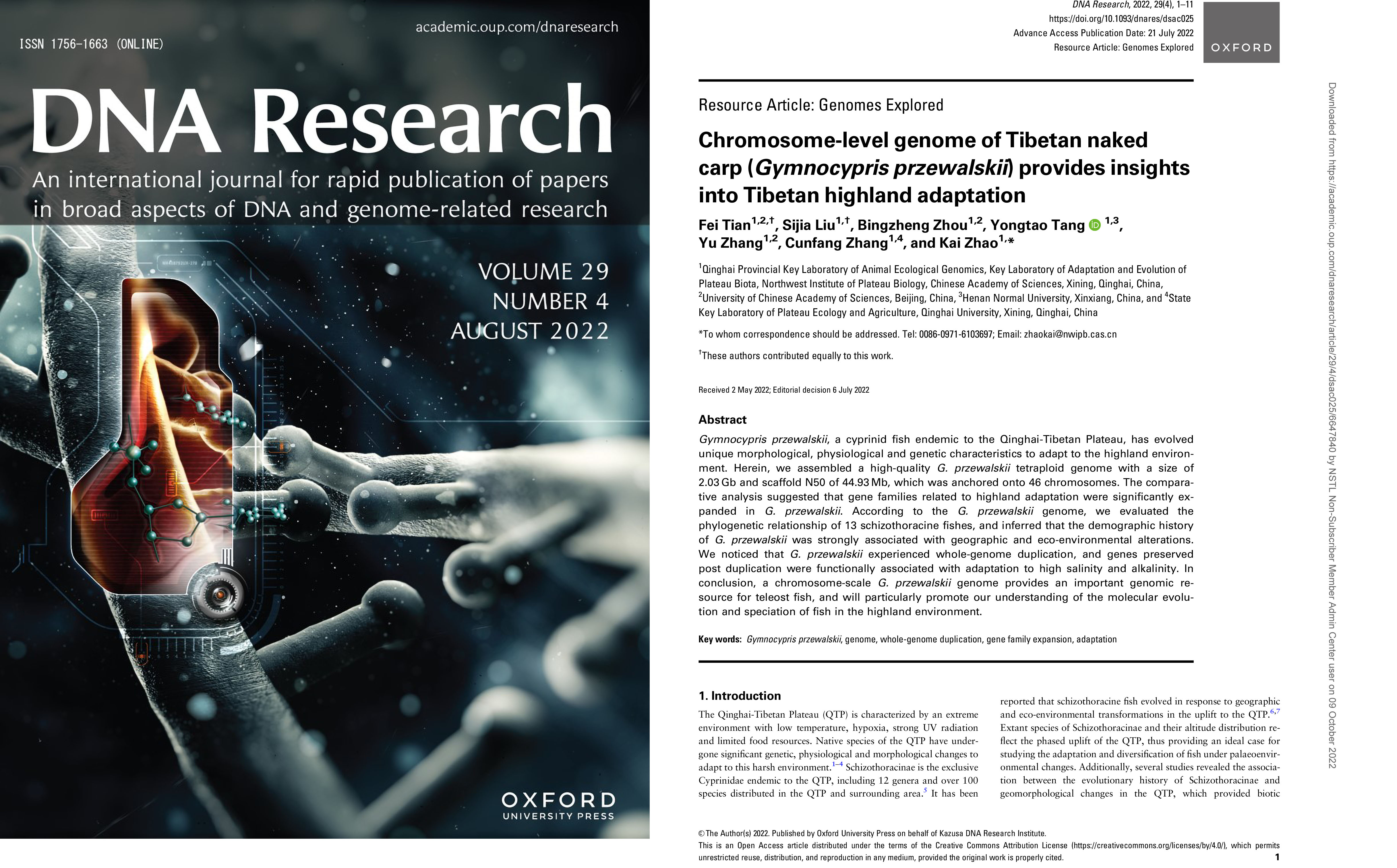Chromosome-level genome of Tibetan naked carp (Gymnocypris przewalskii) provides insights into Tibetan highland adaptation
Abstract:Gymnocypris przewalskii, a cyprinid fish endemic to the Qinghai-Tibetan Plateau, has evolved unique morphological, physiological and genetic characteristics to adapt to the highland environment. Herein, we assembled a high-quality G. przewalskii tetraploid genome with a size of 2.03 Gb and scaffold N50 of 44.93 Mb, which was anchored onto 46 chromosomes. The comparative analysis suggested that gene families related to highland adaptation were significantly expanded in G. przewalskii. According to the G. przewalskii genome, we evaluated the phylogenetic relationship of 13 schizothoracine fishes, and inferred that the demographic history of G. przewalskii was strongly associated with geographic and eco-environmental alterations. We noticed that G. przewalskii experienced whole-genome duplication, and genes preserved post duplication were functionally associated with adaptation to high salinity and alkalinity. In conclusion, a chromosome-scale G. przewalskii genome provides an important genomic resource for teleost fish, and will particularly promote our understanding of the molecular evolution and speciation of fish in the highland environment.




 青公网安备 63010402000197号
青公网安备 63010402000197号